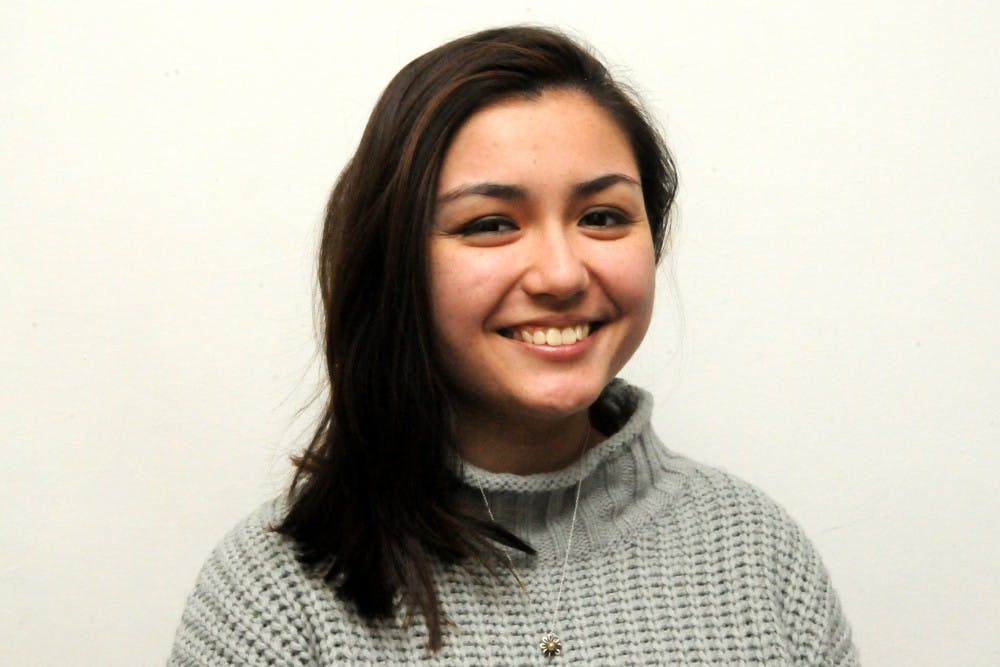Imagine yourself meeting someone new. And you see yourself in someone else’s eyes for the first time. And maybe you get that feeling when their face immediately tries to analyze you.
A mixed kid knows the look that follows immediately. Their eyes linger and pause over your facial features. The look strips you down, it assesses you critically. Skin tone. Nose shape. Eye shape. Hair color. Hair texture. “So, you’re like ... Mexican?”
You sigh. Maybe it’d be easier to just say yes, move on and never meet any new people ever again. As proud as I am of my heritage, being mixed is inevitably a liability in constructing a sense of self. I learned late in the game how hard it is to negotiate two selves.
Whenever I enter a country, I get the feeling that I am not enough of a certain type. My ignorance of my own culture is disappointing, if not slightly hilarious.
My family likes to tease me about my broken Vietnamese and I have trouble making conversation with locals in Vietnam, which makes me nervous about what I’ve lost coming to the United States. The Vietnamese, noticing this, will pity me and make the effort to speak in English.
On the flip side, I have pretty substantial knowledge gaps in U.S. culture. But what I do have is an amalgam of knowledge from different cultural areas. Knowledge that, piece by piece, is not enough to make a whole.
This ends up being the de facto philosophy of a mixed kid: little pieces that struggle to make a greater whole.
The more I speak about my home country, the more I feel I don’t get to use “we” when talking about it, as in “We are,” or “We should.” “We” means I am united with a people. “We” means l can identify with a huge population.
But do I get to say I’m Vietnamese if I’ve lived most of my life in international schools, speaking English with both my parents? Do I get to say I’m American if I’ve lived here for less than a year? Do I get to appropriate these culturally–bound experiences when I’m reminded daily of the incompleteness of my cultural identity? And if I can’t say I’m Vietnamese, then who can?
Most of us have experienced an internal dichotomy at some point in our lives that prevents us from identifying with either half of our selves. Different parts of ourselves are scattered over different physical or cultural spaces, and we might feel caught in between.
In Elizabeth Winston’s article last semester, titled “Mixed-race students struggle to find their place at Penn,” she explores the different issues mixed individuals will deal with: fitting in with cultural expectations and finding a community with which to identify.
Having a mixed Jamaican and Swedish heritage, Elizabeth feels that negotiating the parts of herself can be difficult in a larger community. “When you’re in a place where there’s a lot of white people, and you’re only a handful of POC, you come together just for the sake of that.
In college, when there’s a huge community of black people, I feel like I don’t really fit in with them either because I feel like ... they don’t fully accept me as being black ... If you want to be really black, you have to prove yourself.”
Identity is also connected to a greater heritage or history. If you have a family history that has seen two sides of a racial conflict, it’s hard to reflect on yourself without turning parts of yourself into opposing “sides.”
Historical conflicts in the past lead to internal conflicts years down the line. Where can you stand and be fully accepted as both parts of yourself?
The constant circle of self-questioning throughout this column is the mixed person’s routine. And it’s not helpful when people’s confusion about who you are and where you come from reinforces the insecurity.
You can’t deny that there are sides to who you are, but you don’t know what that makes you. Maybe deep down, you never will.
But as a mixed person, it’s your choice whether you choose to ignore the conflicts of identity, or focus on them. You have to make that choice for yourself.
Eventually, you can recognize that identity is fluid, as is race. Only you get to judge yourself for your identity, and you are responsible for that; others cannot impose that onto you.
So next time you hear “What are you?” you’re allowed to walk away, answering that question for yourself, and not for anyone else.
The Daily Pennsylvanian is an independent, student-run newspaper. Please consider making a donation to support the coverage that shapes the University. Your generosity ensures a future of strong journalism at Penn.
DonatePlease note All comments are eligible for publication in The Daily Pennsylvanian.





